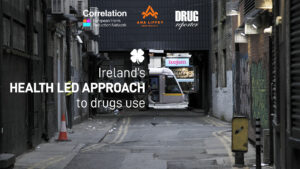The mass detention and forced treatment of people who use drugs in Afghanistan reminds us of the darkest periods of history.
A year ago we filmed people who use drugs in Kabul, Afghanistan, in co-operation with Bridge Hope Health, a local community-based group. They lived under a bridge, under very harsh conditions, abandoned and neglected by society. They were decimated by overdoses and could not even afford to bury their dead. They demanded support from the government to re-build their lives, with no success. At that time we did not anticipate that the situation would change so much in just one year; that the government would fall and the Taliban would raid and round up drug users. And this is exactly what is happening.
It is horrible to see the photos, published by Al Jazeera, showing people standing in lines, waiting to be deported to a detention camp, in prisoners uniform, with shaved heads, threatened and beaten, deprived of all human dignity – it reminds us of the darkest periods of history. Desperate, frightened, shame-filled faces, displayed as public enemies. The stigma attached to drug dependence is rarely more visible and obvious than here: it is usually an abstract term we hear a lot, but what we can witness here is that stigma personified.
What makes this even more terrible is the feeling of powerlessness. The fact that we know we cannot do much to prevent this. If we could not stop the mass detention and execution of drug users in countries like the Philippines, how could we do it in the Taliban-ruled Afghanistan? All advocacy tools, petitions, protests, political pressure – they seem so unlikely to change anything there.
We know that many people applaud such inhumane measures in our own “enlightened” societies as well. Because they believe this is the best way to deal with addiction: to keep a tight hold on people, detach them from society, exclude them from “normal” people and force them to undergo “treatment” for their “disease.” To “fix” something they see as a problem of a dysfunctional individual.
But it is a problem of a dysfunctional community and society that let these people rot under a bridge, with no home, no support, no human connection. Some of these people suffer from mental illness, most are highly traumatised: they lost their homes, their loved ones, and their hope in a country devastated by civil war, poverty, and exploitation.
The absurdity of the situation is that these traumatised people are now further traumatised and hurt by the same system that is responsible for their suffering. We know that one of the key factors leading to drug addiction is trauma – addiction is often a dysfunctional way of coping with pain and shame. How can you therefore expect people to get any better if you make them feel more pain and shame?
All relevant international organisations have acknowledged that forced treatment is neither effective nor ethical in treating drug addiction. There is evidence that “tough”, confrontational methods are not only controversial but harmful. And as all recovery activists emphasise, detox is not the end but the beginning of recovery. Social reintegration is a long process that doesn’t work without motivation and support.
There is only one way to help people fighting drug dependence and that is compassionate care, to address the root causes of suffering: poverty and social inequality. And this is exactly what the current Taliban government denies them, just like the previous governments. It is always easier to imprison people than to build healthy, strong communities. The Taliban may not be affected by petitions and international outcry but staying silent, when a group of people is collectively dehumanised, is not an option.





